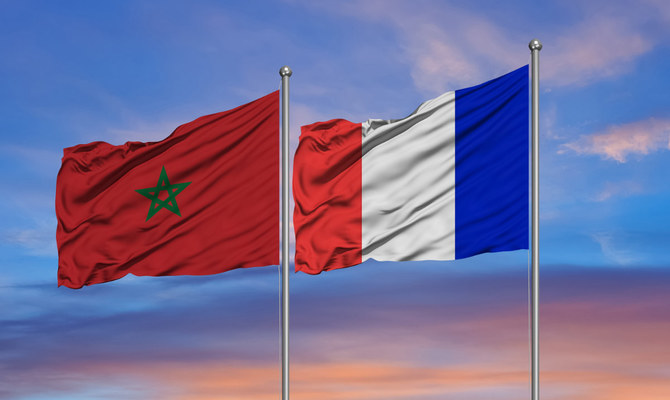Zaid M. Belbagi
There is no Moroccan ambassador in Paris. A communique released last month advised of the “termination of his mission,” causing a frenzy at the Quai D’Orsay as France’s relationship with an old and valued partner took another turn. President Emmanuel Macron, who had hoped to plaster over the cracks in his fraught relationship with Morocco with a visit, has yet to find an invitation to Rabat in the Elysee’s in-tray. Morocco, still recalibrating to a more surefooted diplomacy, has forged new bilateral relations while rekindling an old one with the UK. However, these have come at a cost to its already complicated relations with France and the EU.
Unlike much of French Africa, including nearby Algeria, France did not seek to make Morocco in its image. Having struggled to impose Paris’ will on its existing African possessions, the administrator of Morocco, Marshal Hubert Lyautey, sought to work with and not against the country’s existing institutions, which in turn used the presence of France to strengthen themselves. After a 44-year effort to pacify the country and the dramatic exile of King Mohammed V to Madagascar, France’s situation became untenable and, decades before doing so elsewhere on the continent, the French left Morocco in 1956. This background informs the fascinating “frenemic” nature of relations since. There is no doubt that Macron is a talented politician. However, as he warmly embraced his Algerian counterpart last August and evoked sorrow for the “painful” history of France’s actions in that country, little love was lost elsewhere in Africa, as the consummate political performer sought a 50 percent increase in gas imports to France.
After having made one of the most significant diplomatic gaffes of his presidency by sharing the poorly advised statement that Algeria did not exist as a nation before the French invasion in 1830, his visit last year was a marked volte-face. However, the honeymoon period was not to last and Algeria also withdrew its ambassador to Paris last month. Macron’s trip to Algeria was not itself the cause of the deterioration in relations with Morocco; rather, it was the French president’s passing exchange with a journalist that he would be following up with a trip to Rabat – to where he had not been invited – that shone a spotlight on a relationship that was rapidly growing more contentious.
As Morocco has sought to broaden its international relations, with a strong focus on south-south cooperation, relations with Europe have become more troubled. In the wake of a 2021 European Court of Justice decision to annul EU-Morocco agriculture and fishing agreements, Rabat decided to halt all contact with European institutions. Since then, an initial period of toing and froing with Spain and Germany resulted in an improvement in ties, but relations with France have remained strained. Last month’s sacking of Moroccan-French journalist Rachid M’Barki by leading French television channel BFMTV for alleged foreign meddling in his work was in the same vein as a wider effort to discredit Morocco both in Brussels and Paris.
Given that investigations show that the recent leak surrounding Moroccan favors to EU officials bear the marks of a major European government, fingers have been pointed at Paris. The European parliament has also voted for a resolution calling on the Moroccan authorities to respect the freedom of the press. As the only North African country to be subject to such introspection, the “exceptional relationship” that French Foreign Minister Catherine Colonna sought to underline during her visit to Rabat last December seems a world away from the state of the bilateral relationship today. The situation was not always so. When Macron first sent out feelers in the hope of building bridges during his bid to become president, one Moroccan official quipped “we know the French better than they know themselves.” Indeed, such sentiment was on display as Macron chose Morocco as the destination for his first overseas trip as president in June 2017. And relations were further boosted in the autumn of 2018, when the president and King Mohammed VI beamed as they opened Africa’s first high-speed railway and Morocco took part in the commemoration of the centenary of the Armistice in Paris alongside others that had fought in the Great War.
The several disagreements that have taken place since culminated in a French decision to reduce the number of visas available to Moroccan nationals – a highly contentious issue – despite Paris having welcomed a return to “full consular cooperation” and reiterated its support for Morocco’s autonomy plan for the Western Sahara. Geopolitical concerns and Macron’s propensity for a tenacity that can sometimes seem flippant have made a state visit a distant prospect. Despite the tensions, bilateral trade exceeded €13 billion ($13.8 billion) in 2022, up 24 percent on the previous year. France is also Morocco’s largest foreign investor, ahead of Spain. However, this relationship is likely to change. Morocco has been courted by others, with the new trade protocol signed by the Spanish and Moroccan governments and the UK-Morocco association agreement showing how Rabat has changed tack. The agreement with the UK led to a 60 percent uptick in trade in the following 12 months.
France’s tactical consideration to mitigate Morocco’s expansion of its ties with others by frustrating its efforts in the EU put the soaring French trade with Morocco in jeopardy. As Paris seeks an ambitious “20-year road map” with Rabat, it would do well to reacquaint itself with its history. Morocco is well networked. It is America’s oldest ally and has enjoyed diplomatic ties with the UK for more than 800 years. Leaks and parliamentary machinations do not “confirm the solidity of the partnership,” which France publicly seeks, but rather privately disrupts it.







